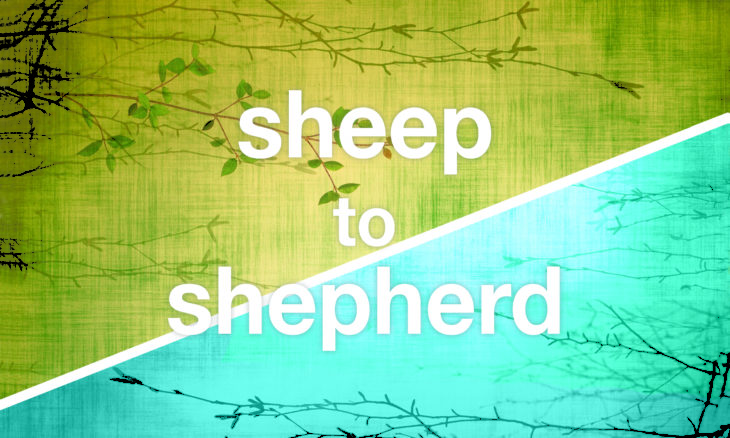SoulShift: The Measure of a Life Transformed
“Sheep to Shepherd”
October 19-20, 2019
If you’re just joining us, we’re nearing the end of a series called SoulShift: The Measure of a Life Transformed, where we’ve been talking about powerful changes God makes on the inside of us. Next week will be the final week of our series but today we want to talk about the next important shift – from ‘Sheep’ to ‘Shepherd’.
If you think about why most people follow Jesus today, those reasons may include salvation, going to heaven, and the promise of eternal life. But when Jesus called His first disciples, those were not the driving factors. So why did Jesus’ earliest disciples follow Him?
Not too long ago I was sitting with a few other people, in the waiting room of an auto shop, while my car was being serviced. We all sat glued to a television in the corner of the room as it aired a special on the first spacesuits to go to the moon.
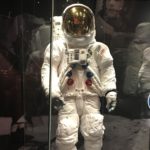
For the Apollo 11 mission, NASA needed a new moon-suit, but all of the big government contractors made stiff bulky prototypes that provided little to no maneuverability. Finally, one company created a more flexible prototype made mostly of fabric. That company was Playtex, makers of bras and girdles. In the end, Playtex won the contract and a handful of their bra-making seamstresses were given a brand new assignment – making the first spacesuits to go to the moon.
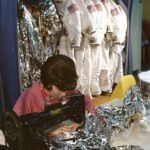
They interviewed one of the seamstresses named Anna Lee Minner about what it was like to work on the moon-suits. She replied, “I went home on many a night and cried because I knew I couldn’t do it.” When asked why, she responded, “I was scared – this was a person’s life this depended on.” Each of the suits required up to 20 layers of material all sewn to 1/64th of an inch precision. The suits underwent brutal inspections and revisions, especially after three astronauts were killed in a flash-fire during a test. To remind them of the seriousness of their work, each suit had a tag attached to it with the name and face of the astronaut who would someday be wearing that suit in space. One tag read, “My suit is pretty special to me. One day, in space, it will be my whole world. Apollo’s success tomorrow is in the hands of ILC (International Latex Corporation) today. Are they skilled hands? I think so, in fact, I’m betting my life on it.” Signed, Neil Armstrong.
On July 20, 1969, those seamstresses held their breath as they watched their work from the TV screen. One seamstress added, “Once they started down the ladder, and he put his foot on the moon, that was the pinnacle of watching something that you helped to do.” Then, to their horror, famous astronaut Buzz Aldrin started running and hopping around, and they all just prayed he would get back up the ladder. But from the first moon mission to the last, not one of the spacesuits failed.
“We enjoyed every bit of it,” commented one of the seamstresses, “Every stitch, I would do it all over again if I could. I loved it.”
Can you imagine the thrill and adventure of being asked to take part in something that would change history and be remembered forever? Even though the disciples didn’t understand the extent of it, this is ultimately what they were saying “Yes” to when they decided to follow Jesus.
18 As Jesus was walking beside the Sea of Galilee, he saw two brothers, Simon called Peter and his brother Andrew. They were casting a net into the lake, for they were fishermen. 19 “Come, follow me,” Jesus said, “and I will send you out to fish for people.” 20 At once they left their nets and followed him,” (Matthew 4:18-19 NIV).
Just like those Playtex seamstresses, these brothers (and others like them) were being invited to use their skills, experiences, and talents to make an impact that would change people’s lives, and history, forever. And this is ultimately what Jesus is calling each of us to follow Him into as well. The call to follow Jesus was never about joining Him to go to heaven (that came way later) the call to follow Jesus is about joining Him in bringing heaven to earth. If you’ve missed it, this entire series has been about how we can shift and transform, into what; into someone who lives like Jesus. So today we want to talk about making the shift from ‘Sheep’ to ‘Shepherd’. Jesus’ desire is that each of us would catch His heart to shepherd others. Whether you realize it or not, God has placed people in your life, that He wants you to shepherd with His heart.
Every Good Shepherd…
1. NEEDS A FLOCK.
35 Jesus went through all the towns and villages, teaching in their synagogues, proclaiming the good news of the kingdom and healing every disease and sickness. 36 When he saw the crowds, he had compassion on them, because they were harassed and helpless, like sheep without a shepherd. 37 Then he said to his disciples, “The harvest is plentiful but the workers are few. 38 Ask the Lord of the harvest, therefore, to send out workers into his harvest field,” (Matthew 9:35-38 NIV).
The Bible says that Jesus’ ministry took Him everywhere. He went to rich and poor alike. He went to the spiritual and non-spiritual. There were no neighborhoods He avoided and no streets He walked around. You remember the occupy Wall Street movement? The Jesus movement occupied all streets. And the Bible says that when Jesus saw the crowds of people that were coming to Him, He was moved with compassion. That word for compassion in the original language isn’t referring to a fleeting emotion like pity or sympathy. The literal definition means to be moved as to one’s bowels. No, it’s not that kind of bowel movement. It’s talking about a compassion that viscerally, physically, shakes you to your core. Have you ever witnessed something that physically moved you into action? It isn’t just a feeling you can brush off. You know you can’t stand idly by.
What was it that moved Jesus into action? It was that everywhere He went He was met with crowds of people that were aimless, directionless, and helpless. Everywhere Jesus went the people were oppressed and defenseless like sheep without a shepherd.
You see the thing about sheep is that they are completely helpless to defend themselves against the attacks of predators like lions, wolves, and bears (Oh my). Sheep are vulnerable to attacks at all hours, day and night, so a shepherd must be ever vigilant. Sheep must also be led to green grass and cool water. Shepherds have to constantly lead their sheep to the next pasture and often have to dig cisterns for the sheep to drink from.
The people Jesus came across were shepherd-less. They had no one to guide them, they were spiritually malnourished with no one to feed them, and they were completely vulnerable to the spiritual, physical, and emotional attacks of life. This is what moves the heart of God. This is what moved Jesus into action. And Jesus commanded His disciples to pray for more people to be moved into action.
I believe Jesus wants to commission every one of us this morning. At the end of His time on earth, shortly before He would ascend back into heaven, Jesus commissioned Simon (also called Peter),
16 “Again Jesus said, “Simon son of John, do you love me?” He answered, “Yes, Lord, you know that I love you.” Jesus said, “Take care of my sheep,” (John 21:16 NIV).
Today Jesus is looking for people who will join Him in the harvest. He is looking for men and women who will see the people around them through the eyes of a shepherd. Who see their family, their friends, their classmates, their neighbors, and co-workers and are moved to compassion.
2. NAMES THEIR FLOCK.
2 “The one who enters by the gate is the shepherd of the sheep. 3 The gatekeeper opens the gate for him, and the sheep listen to his voice. He calls his own sheep by name and leads them out,” (John 10:2-3 NIV).
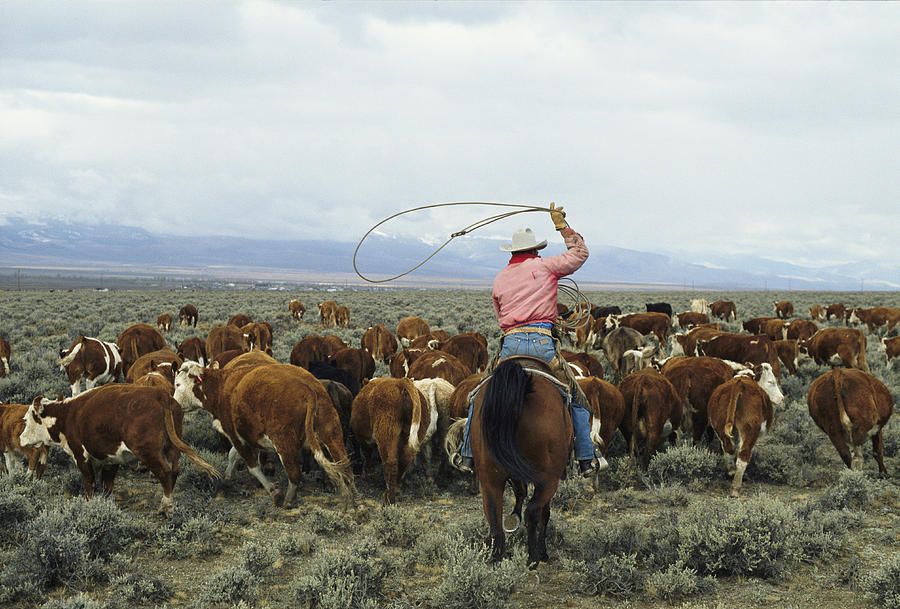
Jesus calls Himself the Good Shepherd but I think there is another image we’re more familiar with. I’m talking about the cowboy. I believe there are too many cowboys and far too few shepherds. Though they both tend to their livestock, they go about it in a completely different manner. Cowboys drive their cattle. Shepherds lead their sheep. Cowboys wrestle, brand, and rope their livestock. A shepherd leads, guides, and feeds theirs. Cowboys know the name of the trail hands. The shepherd knows the name of the sheep. The cowboy whoops and hollers at the cows but the shepherd calls each sheep by name. The shepherd loves his sheep. And it’s not that the cowboy doesn’t appreciate the cow; it’s that he doesn’t know the animal. What’s the difference? A shepherd leads the sheep to be shorn but a cowboy leads the cow to slaughter. Aren’t you glad Jesus didn’t call Himself the Good Cowboy? He’s not a hard-faced ranch-hand from heaven that wants to drive you against your will to places you don’t want to go. He’s the Good Shepherd who knows each of His flock by name and lays His life down for them.
14 “I am the good shepherd; I know my sheep and my sheep know me,” (John 10:14 NIV).
This is who we are called to be for the people in our lives. It begins by identifying those Jesus has placed under your care. Have you taken the time to name those God has placed under your care? Who might God be calling you to shepherd into a deeper relationship with Him? What flocks has He placed in your life? Your home is a flock. Your ministry team is a flock. Those you mentor are a flock. Those who look up to you are a flock. How can we be more intentional about seeing our different spheres of influence as flocks that we shepherd?
3. NURTURES THEIR FLOCK.
There are three key ways we can nurture the people in our lives with a shepherd’s heart.
TEND
1 “The Lord is my shepherd, I lack nothing. 2 He makes me lie down in green pastures,he leads me beside quiet waters, 3 he refreshes my soul. He guides me along the right paths for his name’s sake,” (Psalm 23:1-3 NIV).
A good shepherd tends to those who are under their care. This means they help to keep them on the right path by shepherding them to the One who knows where they should go.
Some time ago in Eastern Turkey some shepherds took a break to eat their breakfast. Apparently, they weren’t keeping a watchful eye on their sheep because one wandered too close to the cliff’s edge and fell to its death. Now sheep naturally tend to follow their shepherd, but in the absence of a shepherd, they follow other sheep. And that’s exactly what happened. When the first sheep fell to its death, 1500 other sheep followed it. 400 of them died and many others were injured. Why did this happen? It’s because they followed a sheep and not the shepherd.
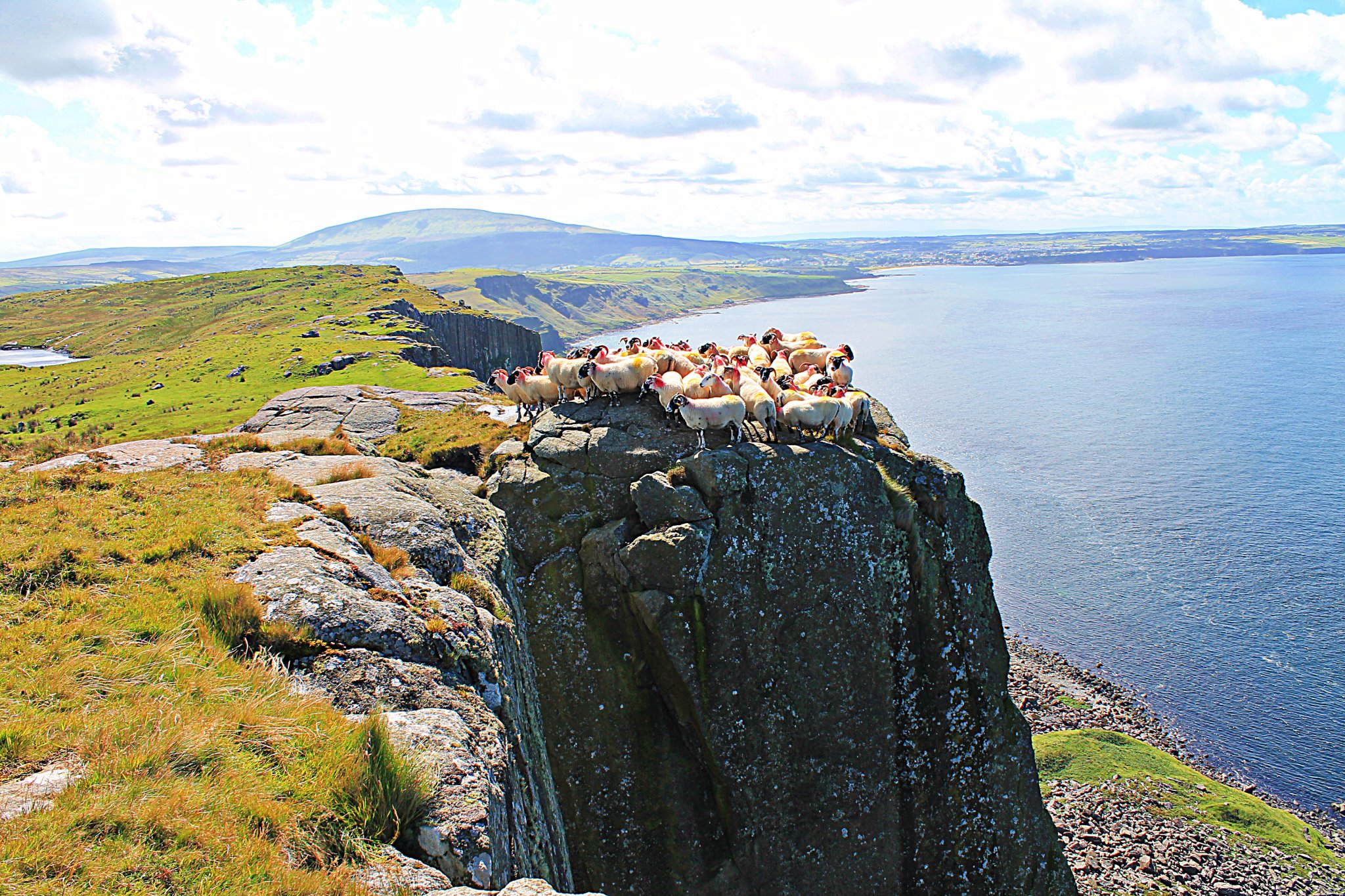
So many people have taken their eyes off of the Shepherd and have followed “Experts”, celebrities, influencers, and leaders. There are so many people who are good at convincing you they know where
they’re going. It’s not that they’re trying to be deceptive or evil but they can only offer you their best guess at where you should go. But often when you follow other sheep, they’ll lead you straight off a cliff.
Listen carefully to the words of David, “The Lord is [a] shepherd?” The Lord is “the” shepherd? No, David says, “The Lord is my shepherd.” David knew his shepherd personally. He trusted His voice and followed His guidance. Can you say that the Lord is your shepherd? Do you now His voice? Do you follow Him along the right paths? It is so important that we know the Shepherd because if we take our eyes off of the shepherd, we’re going to end up following sheep.
Tending to the people in your life means pointing them to the Good Shepherd. God says that He knows the plans He has for us and that He wrote each day in His book before we had lived a single one. Let’s point people toward a personal relationship with the Shepherd. So the first is ‘Tend’ and the second is,
DEFEND
4 “Even though I walk through the darkest valley, I will fear no evil, for you are with me; your rod and your staff, they comfort me,” (Psalm 23:4 NIV).
Even with God as our Shepherd, each of us will inevitably go through a valley. It may be a financial valley, a relational valley; there are emotional valleys, physical valleys, and spiritual valleys. But the Bible assures us time and time again that every problem has a purpose. Green pastures are great but it’s in the valleys that our faith is built. The best shepherds walk with others through their valleys and help them to discover the purpose in their pain. How do we do this? Again, it’s not about leading people unto ourselves but unto the God who is with us in the valley.
As a kid, I had Psalm 23 memorized but I caught something recently that completely changed the way I saw this verse. Listen to the way David’s voice changes from the opening verses to this one.
1 “The Lord is my shepherd, I lack nothing. 2 He makes me lie down in green pastures, He leads me beside quiet waters, 3 He refreshes my soul. He guides me along the right paths for His name’s sake,” (Psalm 23:1-3 NIV).
4 “Even though I walk through the darkest valley, I will fear no evil, for You are with me; Your rod and Your staff, they comfort me,” (Psalm 23:4 NIV).
Isn’t it interesting that David goes from talking about God in the green pastures; he talks about God beside the cool waters, and about God along the paths of righteousness, but the moment he enters the valley he’s talking to God? “I will fear no evil, for You are with me!” “You comfort me!” How many know it’s in the valleys that we come face to face with God. We don’t want to talk about God we need to talk to God. This is where our religion shifts into relationship. It’s in the valleys that God becomes real and says, “I will never leave you nor forsake you.”
So whether the people in your life are going through the valley of temptation, or addictions, or health, our goal as shepherds is to contend for them to have a face-to-face encounter with Jesus. So we ‘Tend’, ‘Defend’, and,
MEND
“And I myself will be the shepherd of my sheep. I myself will make sure they get plenty of rest. I’ll go after the lost, I’ll collect the strays, I’ll doctor the injured, I’ll build up the weak ones and oversee the strong ones so they’re not exploited,” (Ezekiel 34:15-16 MSG).
Jesus is our Good Shepherd who leaves the 99 to go after the one lost sheep. He lays down His life for the sake of His flock. His reach knows no limits. If we run to the highest mountain or the deepest ocean He is there. He gathers us unto Himself so we can rest and He binds up our wounds and heals us of our past.
This morning we serve a Good Shepherd. When we were lost and aimless He left His home to find us. When we were defenseless to the attacks of sin and the enemy He laid down His life for us. He is the shepherd who binds our wounds and heals us from past hurts. It was compassion that moved the heart of Jesus into action. Today He sees the crowds of people in our schools, in our communities, and in our workplaces and again He is moved to compassion because there are so many people who are shepherd-less. They have no one to guide them, no one to comfort them, and no one to stand in the gap against the attacks of life. Again, Jesus is calling His disciples to pray to the Lord of the harvest to send workers. It can be easy to pray for God to send someone else but today Jesus is asking, “Do you love me? Do you love what I love? Take care of my sheep.”
“Do you love me? Do you love what I love? Take care of my sheep.”
Download Audio
Download PDF
